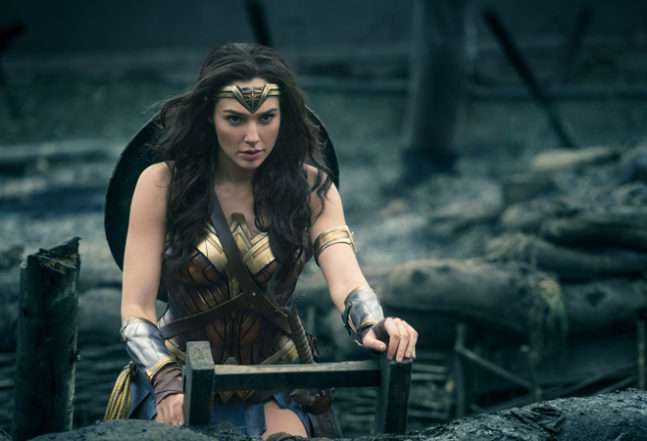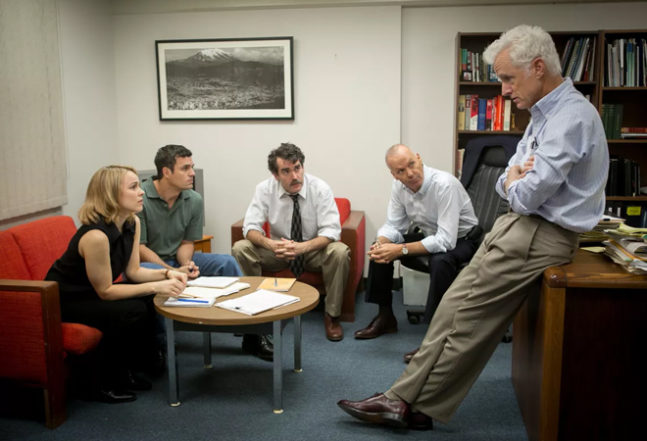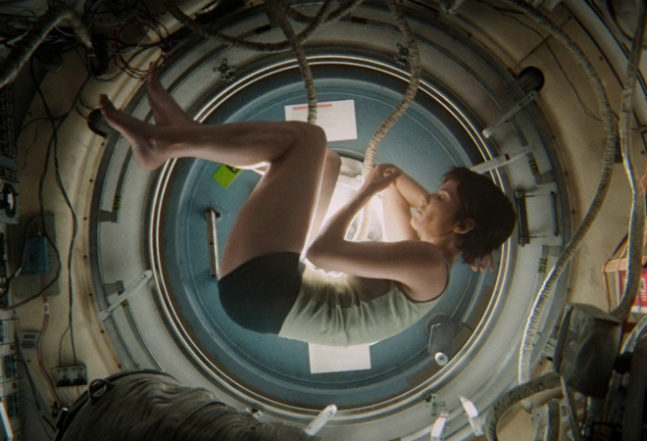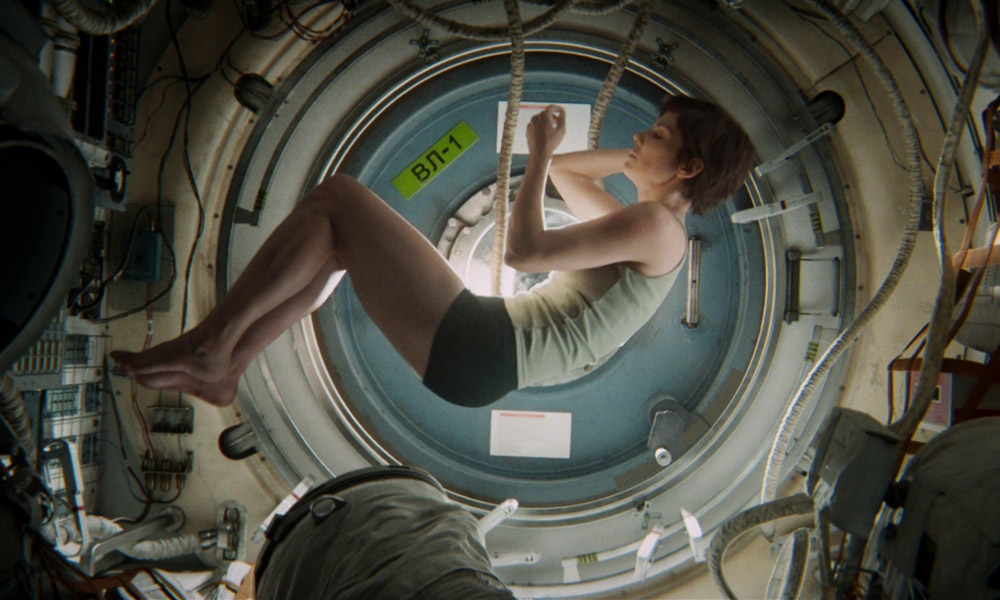Obviously Rotten Tomatoes can’t get it right every time and that idea swings the other way as well. Sometimes movies come out and kill it on the Tomatometer, and we don’t understand why. That’s not to say we didn’t like the movie, because we often did. We just didn’t think it deserved to ace the test. Here are the highest scoring movies on Rotten Tomatoes we don’t agree with.

Wonder Woman | 92%
Up front, we should give credit to Wonder Woman where it deserves it. This is a solid superhero movie with a lot to like and a lot of fun to be had, and a movie we genuinely liked. Diana in London is easily the most fun fish-out-of-water sequence we saw at the movies in 2017, Etta is a giddy delight, and the ensemble built around Wonder Woman is an interesting, fun, diverse cross section of the First World War. Not to mention Wonder Woman in No Man’s Land more than holds its own in the pantheon of superhero movie setpieces. We’re also aware this movie was a huge step forward for female representation in the superhero genre. And her theme song is sick.
But we don’t think it’s the masterpiece Rotten Tomatoes labels it. For one, they missed a huge chance for character development at the end of the movie by making Diana single-handedly win the war exactly the way she said she was going to. Instead of ending the war by killing the big bad, the war should have continued, thereby creating Diana’s belief that mankind was violent and explaining why she’d sit out the Second World War. That’s a lazy, studio-driven ending when the plot driven one is already built much better.
Two, we should say we saw it in the middle of our first listening to Hardcore History’s Blueprint for Armageddon. As a result, in some scenes, all we could see were historical inaccuracies and dangerous generalizations. For example, the Germans here get treated like Nazis, while there’s a strong argument to be made that the Germans were the real victims of WWI, especially once you factor in the Treaty of Versailles. So watching Wonder Woman dropkick one of them out of a third story window while the audience cheers struck a weird nerve we didn’t know we had.

Boyhood | 97%
Our problem with Boyhood rests squarely on the shoulders of the main character. The first few years of his life make for an interesting movie, but as he hits adolescence, he becomes an insufferable bucket of pretension, dim wit, and short sightedness. Just like a lot of teenage boys, come to think of it. We probably weren’t immune to it ourselves, which is probably why it bothers us so much.
And we know these are deeply personal attacks on a real-life person. But we think he earned it. Before they filmed each scene after their year apart, the cast and crew would get together to figure out where the plot should move. That means the guy playing Mason had some serious input on his character, especially later in the movie. With that in mind, try to watch this scene without wanting to punt the kid out the tiny window in the back of his truck. We fully appreciate the technical accomplishment of the movie. They basically captured childhood development in a way no one ever has before. It’s just a shame the guy they watched develop was so boringly typical.

Annie Hall | 97%
Maybe it’s a personal thing, but there are certain things about Woody Allen we just don’t get, besides his super weird relationship history. Annie Hall is consistently regarded as a top comedy and is usually talked about as Allen’s best movie. As such, we were excited to see it. After we did, we couldn’t figure out why. It might just be that we don’t particularly enjoy Allen’s constant complaining. It’s witty sure, but we’d be hard-pressed to spend any longer than five minutes with him in a social setting. There’s only so much negativity we can take. We get that’s his schtick, but it doesn’t do it for us.

Paterson | 96%
Successful writers writing about unsuccessful and/or struggling writers is a downright boring subject. It has to be the most transparent way writers attempt to garner sympathy for themselves or show how difficult it is to “make it” in their industry. Plus, there’s always a sense of humble bragging here. The original author always has to supply the novel, short story, song, poem, stage play, or screenplay the character is struggling with, so when other characters tell them how talented they are, it feels like it’s really just the writer congratulating him- or herself.
That’s a major reason Paterson falls a little flat for us. The main character is a man named Paterson who lives in Paterson, New Jersey, and drives a bus for a living but writes poetry in his spare time. One of the core conflicts of the movie is Paterson’s unwillingness to widely share his poetry, while people around him try to get him to. It’s the situation we were talking about in the last paragraph, where the author seems to be looking for a way to call attention to things he’s written in a thing he’s written so people will tell him how good he is at writing things. While everyone turns in great performances and the movie is clearly made with love and care, we can’t see past how self-congratulatory or self-pitying it really is.

La La Land | 92%
Don’t get us wrong, we did like La La Land. We just didn’t 92% like it. We were more in the high 70s. It’s a weird situation to be in when we’re writing an article about overrated movies, but the simple truth is we weren’t enthralled with La La Land and there’s nothing we’d change about it. Sorry we can’t say more.

Spotlight | 97%
Here’s a subject we’re going to have to dance around a bit to get our point across. Obviously the pedophilia scandal that’s been rocking the Catholic church is a bad thing. No sane person is denying that. Trusted members of the community abused children and there’s no excuse.
This is also a situation rife with drama, so it’s a tempting subject for a film. We understand that as well. But we’ve always had a hard time stomaching these forgone conclusion movies, and Spotlight is definitely one of them. We all know how it ends, most of us were alive for it, and the movie’s revelations simply aren’t revelatory. There’s no suspense in the investigation, the stakes are essentially nonexistent, and we all agree with the outcome. So right there, for us, the movie already felt redundant and unnecessary.
What this really feels like is an alternate take on that self-congratulatory genre we were complaining about earlier. Spotlight was made so the press could feel valuable and important at a time when papers are being hit with closures and sharp declines in revenue. This was a movie that made everyone watching talk about how important the free press is and how we need to support newspapers, tweeted about it, then promptly started looking for ways to bypass the Washington Post’s paywall. It was an emotional Band-Aid for a pervasive ethical problem.

Gravity | 96%
If it makes sense to say, Gravity was a little too big for us. It was certainly a spectacle and we’re happy we saw it, but any screen smaller than an IMAX does it a disservice. Or it does smaller screens a disservice. Either way, it doesn’t play well at home because there simply isn’t much to it when it comes to plot or memorable qualities. The plot was a bit thin and it stretched on for awhile without us being able to remember much about it. There were only a select few scenes that stuck with us and we’re not even sure they stuck with us because we liked them or just happened to remember them.
To put it another way, Gravity struck us the same way the early days of VR did. It’s a great proof of concept and we expect there will be more enormous spectacle films to follow it, but there wasn’t enough to it to keep us around or make us want a second viewing outside of the odd special theatrical rerelease. If we’re going to watch and remember an Alfonso Cuaron movie, we’ll stick with Children of Men.





